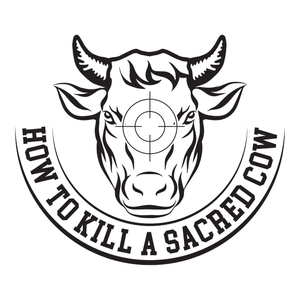
E39: Farming fury — what’s really driving EU protests?
02/08/24 • 65 min
Farmers’ protests have erupted across the EU. In Germany, Greece, Italy and other countries, they’re blocking city centres with tractors, spraying manure on government buildings and pelting officials with eggs. Why? Inadequate compensation, high taxes, red tape and the impact of climate regulations.
Establishment media have dismissed the protests as the grumblings of a coddled group over unfair competition, and suggested that the rallies are driven by the far-right. But others point out that far-right parties are co-opting farmers’ legitimate concerns: those of ordinary people whose needs are being ignored by elites.
What’s really behind these protests? And with the European elections on the horizon, and far-right parties on the rise, what might it all mean?
Our panel, including Yanis Varoufakis, Karin De Rigo and Federico Dolce, investigates. Join us live and have your say!
SUPPORT US
- Join: https://diem25.org/join
- Donate: https://diem25.org/donate
- Subscribe: https://www.youtube.com/c/DiEM25official
Farmers’ protests have erupted across the EU. In Germany, Greece, Italy and other countries, they’re blocking city centres with tractors, spraying manure on government buildings and pelting officials with eggs. Why? Inadequate compensation, high taxes, red tape and the impact of climate regulations.
Establishment media have dismissed the protests as the grumblings of a coddled group over unfair competition, and suggested that the rallies are driven by the far-right. But others point out that far-right parties are co-opting farmers’ legitimate concerns: those of ordinary people whose needs are being ignored by elites.
What’s really behind these protests? And with the European elections on the horizon, and far-right parties on the rise, what might it all mean?
Our panel, including Yanis Varoufakis, Karin De Rigo and Federico Dolce, investigates. Join us live and have your say!
SUPPORT US
- Join: https://diem25.org/join
- Donate: https://diem25.org/donate
- Subscribe: https://www.youtube.com/c/DiEM25official
Previous Episode

Lucas Febraro interviews Udi Raz — Jewish guide FIRED from Berlin's Jewish Museum for supporting Palestine
An interview with Udi Raz from Jewish Voice for Peace in the Middle East on how the Holocaust impacted the societies and politics of both Germany and Israel January 27 is Holocaust Remembrance Day, a date of enormous symbolic importance in Europe, marking one of the darkest chapters in human history. It's a day of particular significance in Germany, of course. The so-called remembrance culture, Germany's reckoning with the legacy of the Nazi periods, and the industrial scale genocides perpetrated by the Nazi regime, have been much lauded internationally.
But today, parts of this culture are increasingly coming into question by many, with charges of antisemitism being used by German institutions to silence voices speaking up for the rights of Palestinians in particular. The targets of these charges are, disproportionately, the Palestinians themselves, Arabs, more broadly, and Jews.
On the international stage, meanwhile, Germany's long steadfast support for the State of Israel, which remains unshaken even as the civilian toll in Gaza continues to climb to ever more obscene numbers, has raised the ire of many. The support, of course, is again justified by the legacy of the Holocaust and the German state's resulting sense of responsibility towards the security of the Jewish state. What about Israel itself? How has the memory of the Holocaust shaped Israeli society and how does it influence the Israeli government's words and actions?
To discuss all this, DiEM25 Communications Director Lucas Febraro sat down with Udi Raz, a doctoral fellow at the Berlin Graduate School for Muslim Cultures and Societies and a board member of Jewish Voice for Peace in the Middle East, in Germany.
SUPPORT US
- Join: https://diem25.org/join
- Donate: https://diem25.org/donate
- Subscribe: https://www.youtube.com/c/DiEM25official
Next Episode

E40: The war on truth – Julian Assange, media and global discourse
This week, we’ll have the final ruling on whether Julian Assange can be extradited to the US, to face a 175-year prison sentence for revealing the secrets of power. The case casts a long shadow over press freedom, signaling what many see as the ultimate demise of journalistic independence.
At the same time, the media’s historical role in supporting (selling) conflicts in Iraq, Afghanistan, and its imbalanced coverage of the situation in Gaza, raises pressing questions about the impartiality and integrity of our news sources. While accusations of ‘disinformation’ have become increasingly weaponised to discredit dissent.
As we stand on the brink of global conflict, what does all this mean for the future of journalism, democratic discourse, and our understanding of world events? How do these dynamics affect our ability to confront power and make informed decisions as a society?
Our panel, including Yanis Varoufakis, Karin De Rigo and Federico Dolce, investigates.
SUPPORT US
- Join: https://diem25.org/join
- Donate: https://diem25.org/donate
- Subscribe: https://www.youtube.com/c/DiEM25official
If you like this episode you’ll love
Episode Comments
Generate a badge
Get a badge for your website that links back to this episode
<a href="https://goodpods.com/podcasts/diem25-311907/e39-farming-fury-whats-really-driving-eu-protests-45023654"> <img src="https://storage.googleapis.com/goodpods-images-bucket/badges/generic-badge-1.svg" alt="listen to e39: farming fury — what’s really driving eu protests? on goodpods" style="width: 225px" /> </a>
Copy




